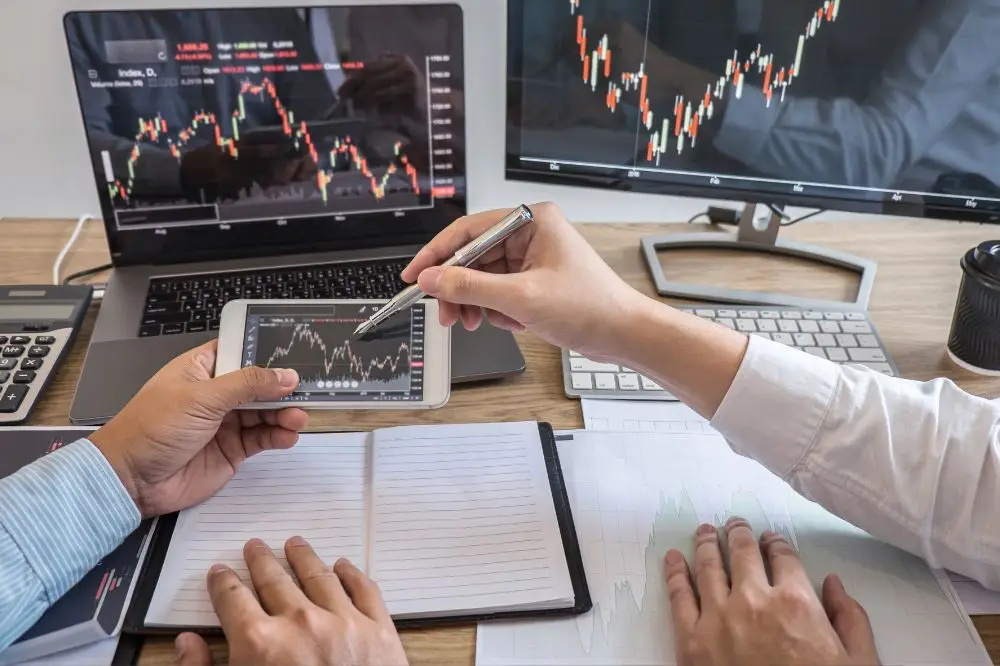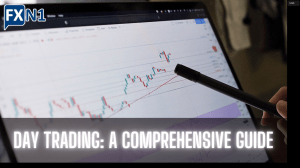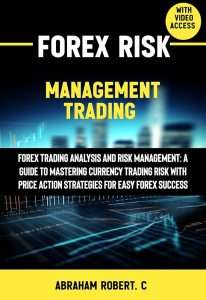Choosing the Right Forex Trading Broker: A Comprehensive Guide
Unlock forex trading success! This guide helps you navigate the complexities of choosing a reliable and suitable broker. Learn the secrets to finding the perfect fit for your trading style and goals. Conquer the forex market today!

The world of forex trading can seem daunting for newcomers. It’s a vast, complex market where currencies are traded around the clock. Understanding the nuances of trading requires dedication and thorough research. Choosing the right forex trading broker is, therefore, a crucial first step, significantly impacting your trading success and overall experience. This guide will delve into the essential aspects of selecting a reputable and suitable broker, ensuring you’re well-equipped to navigate this exciting but challenging market.
Understanding Forex Trading Brokers
Forex trading brokers act as intermediaries between you and the global forex market. They provide the platform and tools necessary to execute trades, offering access to a wide range of currency pairs. These brokers facilitate the buying and selling of currencies, earning commissions or spreads on each transaction. The choice of broker is paramount, as their reliability, security, and platform features directly impact your trading outcomes.
Types of Forex Trading Brokers
The forex market offers a variety of broker types, each with its own advantages and disadvantages. Understanding these differences is key to making an informed decision.
- Dealing Desk Brokers (DD): These brokers act as counterparties to your trades, meaning they take the opposite side of your position. This can lead to potential conflicts of interest.
- No Dealing Desk Brokers (NDD): These brokers pass your orders directly to the interbank market, eliminating potential conflicts of interest and often offering tighter spreads. They typically operate on an agency model, earning commissions rather than profiting from your losses.
- Electronic Communication Networks (ECNs): ECN brokers connect traders directly to liquidity providers, ensuring fast execution and transparency. They often offer access to a wider range of markets and better pricing.
- Market Makers: These brokers provide quotes and execute trades internally, offering convenience but potentially less transparency.
Key Factors to Consider When Choosing a Broker
Selecting the right forex trading broker involves careful consideration of several crucial factors. Ignoring these could lead to frustrating trading experiences or even financial losses. Prioritize your needs and thoroughly research potential brokers before committing.
Regulation and Licensing
Ensure your chosen broker is regulated by a reputable financial authority. Regulation provides a layer of protection for your funds and ensures the broker adheres to specific standards of conduct and financial stability. Look for licenses from well-known regulatory bodies such as the FCA (UK), NFA (USA), or ASIC (Australia). A lack of regulation should be a significant red flag.
Trading Platform
The trading platform is your primary interface with the forex market. Choose a platform that is user-friendly, reliable, and offers the tools and features you need. Consider factors such as charting capabilities, order execution speed, and the availability of mobile trading apps. Many brokers offer demo accounts, allowing you to test the platform before committing real funds.
Spreads and Commissions
Spreads and commissions are the costs associated with trading. Spreads represent the difference between the bid and ask prices of a currency pair, while commissions are additional fees charged per trade. Compare spreads and commissions across different brokers to find the most cost-effective option. Remember that lower spreads don’t always equate to better value, considering other factors such as platform quality and customer support.
Account Types and Minimum Deposits
Forex brokers offer various account types, each with different features and minimum deposit requirements. Select an account type that aligns with your trading experience and capital. Beginners might find micro or mini accounts suitable, while experienced traders may prefer standard or ECN accounts. Always be wary of excessively high minimum deposit requirements.
Customer Support
Reliable customer support is crucial, especially when dealing with a complex market like forex. Choose a broker that offers multiple channels of support, such as phone, email, and live chat. Assess the responsiveness and helpfulness of their support team before committing. Prompt and knowledgeable customer support can make a significant difference in resolving any issues that may arise.
Leverage and Margin
Leverage allows you to control larger positions with a smaller amount of capital. While leverage can magnify profits, it also amplifies losses. Understand the risks associated with leverage and choose a level that aligns with your risk tolerance. Similarly, be aware of margin calls, which occur when your account equity falls below the required margin level.
Educational Resources
Many reputable brokers provide educational resources to help traders learn and improve their skills. Look for brokers that offer webinars, tutorials, and market analysis to enhance your understanding of forex trading. These resources can prove invaluable, particularly for beginners navigating the complexities of the market.
Security and Safety
The security of your funds is paramount. Choose a broker that employs robust security measures to protect your account and personal information. Look for features such as two-factor authentication, encryption, and segregated client accounts. A secure broker will prioritize the safety and integrity of your funds.
Choosing the Right Broker for Your Needs
The ideal forex trading broker depends largely on your individual circumstances and trading style. Consider your experience level, trading goals, and risk tolerance when making your decision. Beginners should prioritize brokers with excellent educational resources and strong customer support. Experienced traders might focus on factors such as tight spreads and advanced platform features.
- Beginners: Look for regulated brokers with user-friendly platforms, educational resources, and responsive customer support. Micro or mini accounts are often suitable for starting.
- Intermediate Traders: Consider brokers offering a balance of features, including competitive spreads, advanced charting tools, and reliable execution. Standard accounts are a common choice at this level.
- Experienced Traders: Prioritize ECN brokers with tight spreads, fast execution, and access to advanced trading tools. They may prefer accounts with higher leverage, but always manage risk carefully.
Thorough research is crucial before selecting a forex trading broker. Compare different brokers based on the factors discussed above, read reviews, and consider testing demo accounts before committing real funds. Remember, choosing the right broker is a fundamental step towards successful forex trading.
Forex trading involves significant risk, and it’s essential to understand the potential for losses before engaging. Never invest more than you can afford to lose. Consider seeking professional financial advice before making any investment decisions.
The forex market is dynamic and constantly evolving. Staying informed about market trends and developments is crucial for successful trading. Continuously refine your trading strategy and adapt to changing market conditions. Consistent learning and risk management are essential for long-term success in forex trading.
By carefully considering the factors outlined in this guide and conducting thorough research, you can significantly improve your chances of selecting a forex trading broker that meets your needs and supports your trading journey. Remember to prioritize regulation, security, and a platform that suits your trading style.
Ultimately, the best forex trading broker for you will depend on your individual preferences and trading goals. Don’t hesitate to explore various options and compare their offerings before making your final decision. A well-informed choice can make all the difference in your forex trading success.
Successful forex trading requires continuous learning, discipline, and effective risk management. Remember that past performance is not indicative of future results, and losses are a possibility. Always trade responsibly and within your means.
This guide serves as a starting point for your research. Further investigation and due diligence are essential before selecting a forex trading broker. Your success in forex trading depends not only on the broker you choose but also on your knowledge, skills, and risk management strategies.







